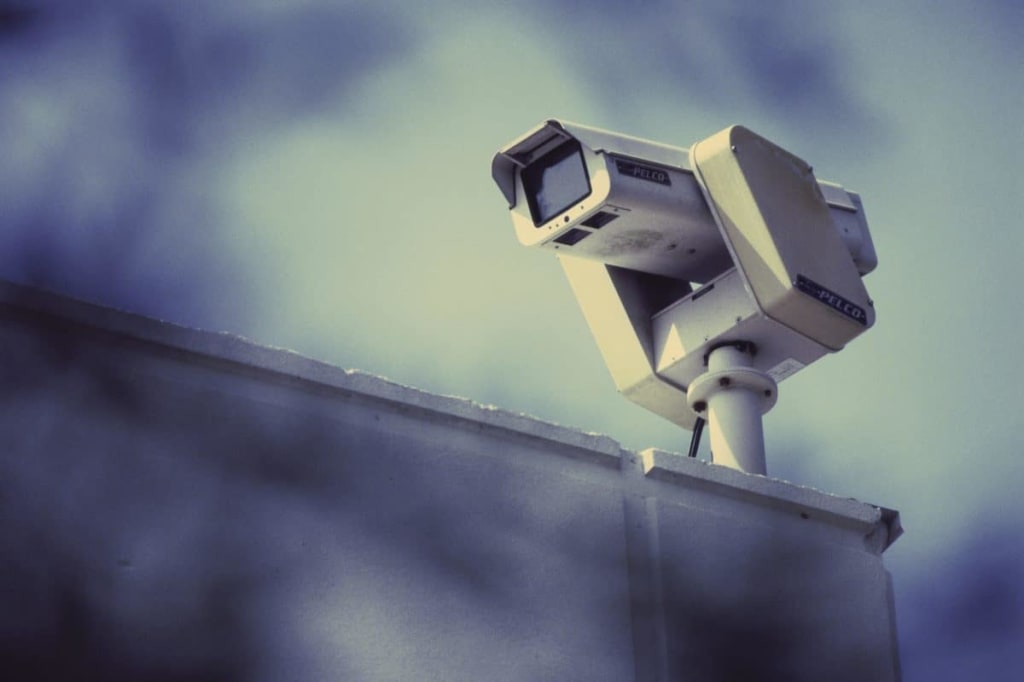Splitting Hairs, Everywhere
What it means for management, and for society, when we expect indisputable video evidence...of everything

I am a football junkie. No, I don’t play fantasy football. No, I’m not a gambler (those casinos in Las Vegas didn’t build the fountains and the pirate ships off the backs of winners!) It’s just an enjoyable way to pass the day, and in the age of working on a second, or even a third screen, four hour college games are not annoying, they are good background noise and entertainment. Dan LeBatard once said that “Sports are the ultimate reality show,” and in the age of ESPN, that is entirely true!
But sports today is much more that that today. They are the crucible of our times—a reflection of our society as a whole. And so when I recently read an article, How Mike Pereira Changed the Way We Watch Football Forever, my thoughts turned to a simple proposition. This is the unmistakable fact that how we watch football is influencing how we look at many situations in the workplace, and in life in general.
When we view a football game on TV, we are viewing not just what happens in real time but what it means, in the context of the rules. Ah, the rules! As those charged with making calls, both in games and on TV. readily admit, in the age of social media, millions of people will debate a single call online.
And so now, we are coming to expect every call in every situation, sports or not, to be subject to “further review.” Whether it’s a managerial action, an election, a social interaction, etc... More and more, we see the decision made in the moment as not being the “ultimate” decision. Just as whether a ball was fumbled, an interception was made, a catch was completed, the goal line was penetrated, etc... More and more, we expect managerial actions to be “right” and indisputable.
What does this mean for management in practice? In short, it means a whole lot. We are evolving to expect an unrealistic level of proof when it comes to literally everything! If you talk to lawyers, jurors expect every case to either have a confession or DNA evidence. If you talk to educators, every case of cheating is expected to have irrefutable proof, on the part of the teacher (meaning the administration), that the student has indeed cheated on the test or the paper in question. And if you talk to managers, every case of employee discipline is expected to have a substantial case behind it, backed by either video and/or systemic evidence of problematic behavior.
We simply can’t manage on a day-to-day basis expecting to have HD, slow-motion, irrefutable evidence of whatever happened in any situation. This is simply an unreasonable standard. What we see on television broadcasts of NFL and NCAA games is not nearly the standard we have in real life. Whether a game is covered by three cameras or 18, in the course of “normal” life, we only have one view, our own—maybe that of an “eye in the sky” security camera, which may or may not bear any useful information on the situation in question. In contrast to the eight cameras focused on a wide receiver trying to catch a pass in a Sunday afternoon NFL game, in real life, the best, the very best, we can hope for is some sort of video footage from a grainy camera that may, or may not, capture anything relevant to the incident in question.
And yet, the expectations of technology are indeed impacting the way we manage, and our ESPN-centric culture is demanding more and more video evidence to substantiate whatever decision we as managers might make, whether in regards to the actions of our employees or our customers. We are becoming “gun shy” on our own intuition, as we expect as managers to need “other sources” of evidence to substantiate our decisions. Our eyes are not viewed as “good enough” anymore. If you want to survive, you’d better have more than just your opinion, your instincts, your observations on a situation involving an employee. In the litigious society in which we exist today, we are more and more expecting to have “instant replay” not just at our disposal, but as part of how we go about making decisions—both in the moment and after the fact. We have become comfortable in an HD, multiple-angle on events world, where the definition of yes is debatable.
And so as managers, yes, we should, quite reasonably and logically, become more cautious. In the litigious society in which we live, this is only reasonable. However, life is not like TV. We don’t have multiple angles on every situation. Much as we would like to have complete information on every situation in which we need to make a decision, life does not work that way. And so when we are presented with ambiguity, many of us - quite understandably punt in that situation, deferring a definitive decision for another time. However, the NFL/NCAA/NCAA/MLB/NBA instant replay culture is a reality today. And as such, we must temper the desire to manage in real time with the need to manage in reality. In many situations, we may indeed need to take a pause to see what the video says about the actions of our employee, our manager, or our customer. Such is the reality of the “instant replay” culture in which we live and manage today - and for good and for bad, it is the reality of our times. The sooner you realize that, the more effective—and the less challenged, both practically and legally, you will be as a manager. We live in an HD, slow-motion world. Get used to it! Simply put, if you don’t roll with the punches, the times will punch you!
About the Creator
David Wyld
Professor, Consultant, Doer. Founder/Publisher of The IDEA Publishing (http://www.theideapublishing.com/) & Modern Business Press (http://www.modernbusinesspress.com)






Comments
There are no comments for this story
Be the first to respond and start the conversation.